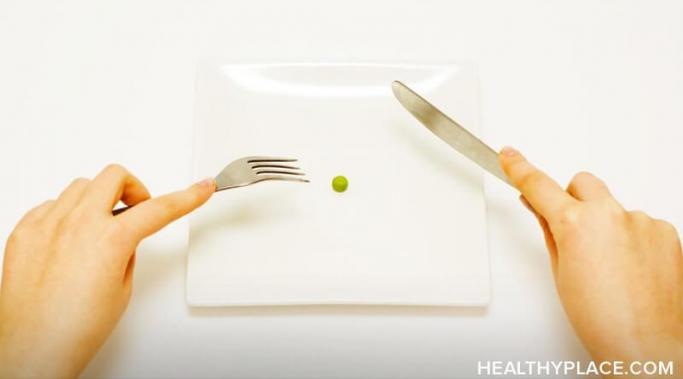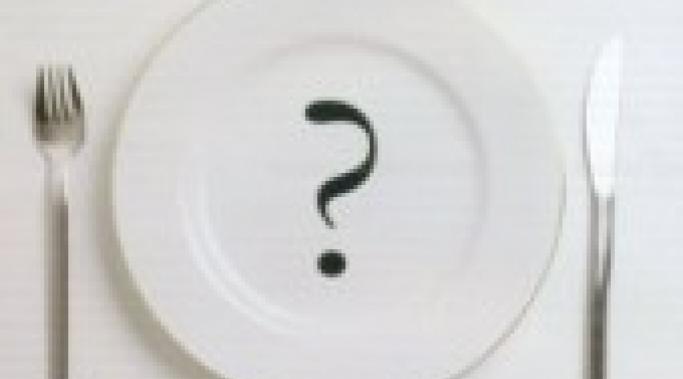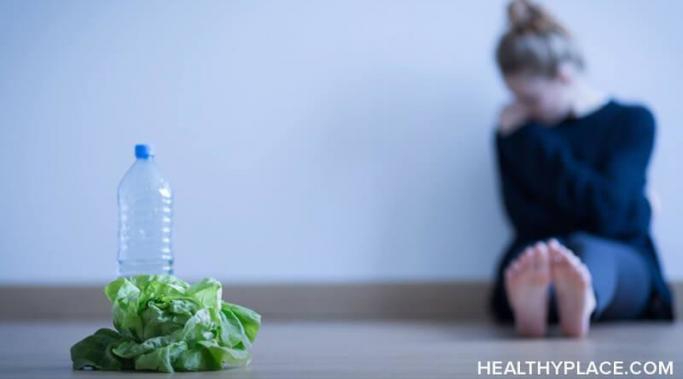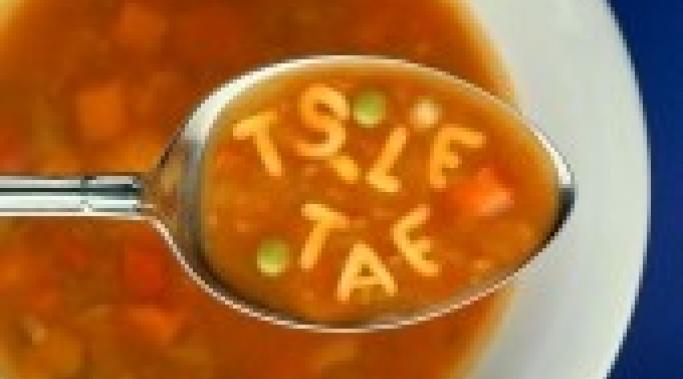My thinness is an outward manifestation of my inner pain that I am unable to voice.
This is my last year of graduate school and I have started working on my thesis. It will be a creative non-fiction piece divided into two parts. One part will be about my struggles with anorexia nervosa, and my ultimate decision to begin the work of recovery in the midst of personal chaos. The other piece will review the memoirs and creative non-fiction writings written by women who have experienced anorexia and/or bulimia.
I deliberately chose to write my thesis about women only, in part because I plan to apply feminist theory to my thesis and I believe that eating disorders develop differently in women and men.
I have been enmeshed in writings about eating disorders these past few weeks, and I have found a common thread throughout the writings that resonate with my own experiences with anorexia.
Silence. At some point, each of these women have written about feeling silenced and having to regain their voices during recovery.
I believe at heart that eating disorders are illnesses of silence, of an inability to speak about inner pain, to give voice to what we are feeling and going through in the deepest reaches of our souls.
Eating Disorders Treatment
Recently I was invited to write on my personal blog about weight stigma and what does it mean to me as part of fellow blogger and ED activist Voice in Recovery's Weight Stigma Blog Carnival. (ViR is HealthyPlace blogger Kendra Sebelius, author of Debunking Addiction.) I wanted to continue the conversation about weight stigma on Surviving ED.
I was very nervous about writing "Weight(ing) For Change: Why Weight Stigma Impacts Us All." Why? Because it forced me to face my own prejudices and fears towards people who are overweight or obese, and about weight in general.
In part one of this series, I talked about the lure of anorexia and how, at first, I didn't think of anorexia as an addiction. But it is and, of course, the first step to breaking the chains of addiction to starving is both very simple and complex at the same time.
I needed to eat and reach a healthy weight. That required me to eat three meals and drink three Ensure Plus daily, and watch as the scale slowly climbed upward. This is very frightening for those of us struggling with anorexia nervosa.
But there is no other way. Until I achieved full and consistent nutrition, the eating disorder part of my brain was going to keep telling me to starve myself. I would be forever chained to anorexia.
Addiction is a strange thing. No one sets out to become addicted, whether it is to cigarettes, prescription medications, alcohol or any other substance. My father had been an alcoholic and he had made our lives a living hell. I never wanted to see myself in that light.
Then I developed anorexia nervosa. At first, I didn't think of it as an illness of addiction. My husband and I argued about it one night several years ago. I had again started the cycle — restrict, starve, purge with laxatives as needed, and repeat every day.
"You're addicted to starving," he said.
"Anorexia isn't addiction. Anorexia is totally different," I argued. "If you would read some books or something . . . You don't know what you're talking about, you don't understand at all."
"I did read that one book, and anorexia is an addiction. Just like alcoholism."
Today my doctor said to me, "You know, you deserve to be happy. You deserve to recover."
I sometimes question if I do deserve to recover. I'm not proud of some of the things I have done in life. I have not always been the kindest person. I have sometimes ignored people who needed me. I have put my husband and loved ones through years of anguish and fear as I slipped further and further into anorexia nervosa and failed at recovery many times.
I have made them cry as they thought that I could possibly die from my eating disorder. I blocked myself off from their fears and pleas, and continued to pursue thinness ruthlessly for years like a person possessed.
All of these things make me question my worth and if I deserve to recovery. But there's something more. My doctor, a wonderfully perceptive man even when I sometimes sit silently and dive back into the safety of my thoughts, said I have this space within my brain that allows the eating disorder to tell me that I do not deserve to be happy, healthy, and free.
This is so true, and I sometimes want to scream at the voices to stop and leave me alone.
A 2008 Harris Interactive study found that about 0.5 percent of Americans are vegan and 3.2 percent of Americans are vegetarians. That equals 1 million and 7.3 million respectively.
That's a pretty low number. Why then does it seem that I know so many people with eating disorders who either are vegan, vegetarian, or practice some other type of eating different from the normal population?
In this video, I reflect upon society's obsession with looks and how this can be dangerous for both young girls and women with eating disorders. Watch here:
Eating disorders and loneliness. It is not something we speak or write about often. It is painful to think about being lonely. But I believe people with eating disorders are often very lonely. It is the nature of these illnesses. But it doesn't have to be this way. I would like to shine some light into these dark corners of loneliness, and perhaps help other people with eating disorders feel less alone.
PHP IOP NG Tube AN TPN IP AMA . . .
The first time I was hospitalized for anorexia nervosa was in June 2008. I left after 24 hours — AMA. The second time I was hospitalized for treatment my doctor informed me I would need a TPN.
I was totally clueless about the acronyms and terms. It can feel like you are swimming in a vast sea of alphabet soup when you first enter the world of eating disorders treatment.
My therapist said to me today, "This is your recovery."
Each person is unique, and that includes people with eating disorders. There may be a checklist of symptoms, but how an eating disorder manifests itself in each person is different. It is logical that each person's recovery process from an eating disorder also would be unique.
Then why do I find I compare myself to others in recovery and often feel I come up lacking?








